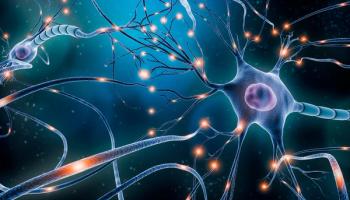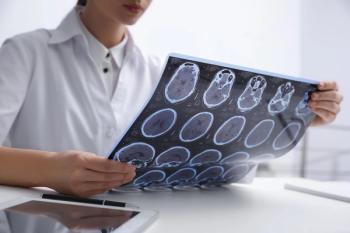
Multiple Sclerosis: Guidelines and Palliative Care
Amit Bar-Or, MD, FRCP, FAAN, FANA: The National Multiple Sclerosis [MS] Society has come out with several different recommendations and guidelines that relate to the ongoing care and the multidisciplinary approach to caring for multiple sclerosis and its multiple symptoms. And, of course, when one thinks of therapies for multiple sclerosis, there are those that are designed to treat acute relapses. There are multiple treatments that are designed to try to change the course of multiple sclerosis by limiting new disease activity and injury. And then there are multiple treatments designed to treat symptoms of multiple sclerosis that include fatigue, sleep abnormalities, and issues with pain, discomfort, and tingling sensations, as well as issues with instability of gait and a variety of other features that are commonly experienced by people living with MS.
Physical therapy in multiple sclerosis has been studied over the years. Patients often feel more actively and proactively involved in their care when they’re participating in physical therapy. Experienced physical therapists can also provide input into exercise regimens, which can be very important. Of course, for people who have more advanced disabilities, passive physiotherapy can also be important to limit contractures and to ensure that people are not going to be subject to some of the complications of substantial disability and immobility.
Among common symptoms of multiple sclerosis are fatigue and spasticity, both of which can be very debilitating for patients. There are different approaches to try to deal with each of them. There are some medications that are out there, although they are imperfect. Lifestyle and activity can also be very helpful for sleep in particular. Sleep hygiene is very important to understand. It may contribute to daytime sleepiness, and we know that sleep is disrupted in individuals with MS, well above the average population. Depression is a common feature in multiple sclerosis and more commonly presents in patients with MS than in the general population. Of course, that can feed into people’s level of motivation and ability to engage. So it’s another aspect to consider when someone is tired. One has to consider medical conditions such as low thyroid levels or anemia as well, medical conditions that can contribute to fatigue. So overall, it is often a multifaceted contribution to the patient’s experience.
Spasticity is a potentially a very troubling symptom. It can be particularly aggravating at night and can be associated with spasms that can awaken significant others and create issues with sleep quality and hygiene, in turn contributing to daytime sleepiness. And, in addition to medications that can be useful for spasticity, having an exercise regimen, including both passive and active stretching, can be quite helpful.
People with MS can experience bladder problems, which commonly include increased frequency of urination and what’s called bladder spasticity, where patients get a sudden urge to urinate and need to urgently do so, otherwise they may lose control. The approach of not drinking as much is not a particularly advocated approach. One should be able to maintain good hydration. But there are ways of trying to address issues of bladder problems, including the urgency and the spastic bladder, and these include a number of very straightforward medications that can be quite effective at limiting these symptoms.
Barry Hendin, MD: Acute exacerbations are important in the short-term because people function less well in so many instances and in the long-term because recovery is unpredictable and may be prolonged. And a number of relapses—either clinical or subclinical—increase the likelihood that there will be progressive disability over time. We have a number of options for treating patients. The classical treatment is steroids, IV or PO, intravenously or by mouth, in relatively high doses. One may alternatively use a lesser consideration of adrenocorticotropic hormone [ACTH]; or when the relapse is particularly severe and particularly worrisome, plasmapheresis.
Newsletter
Stay ahead of policy, cost, and value—subscribe to AJMC for expert insights at the intersection of clinical care and health economics.









